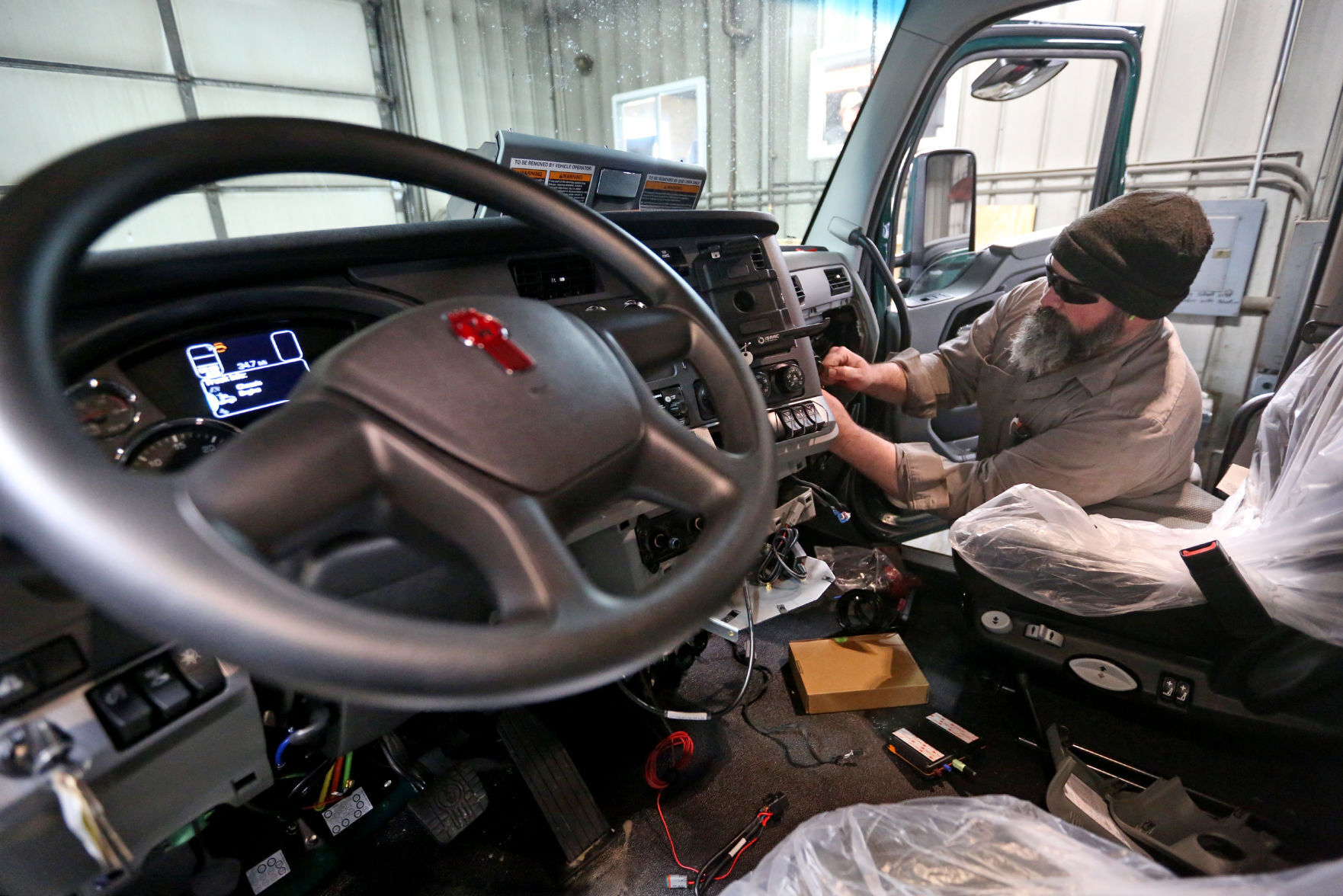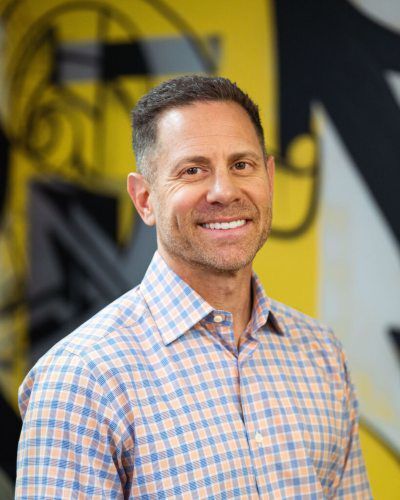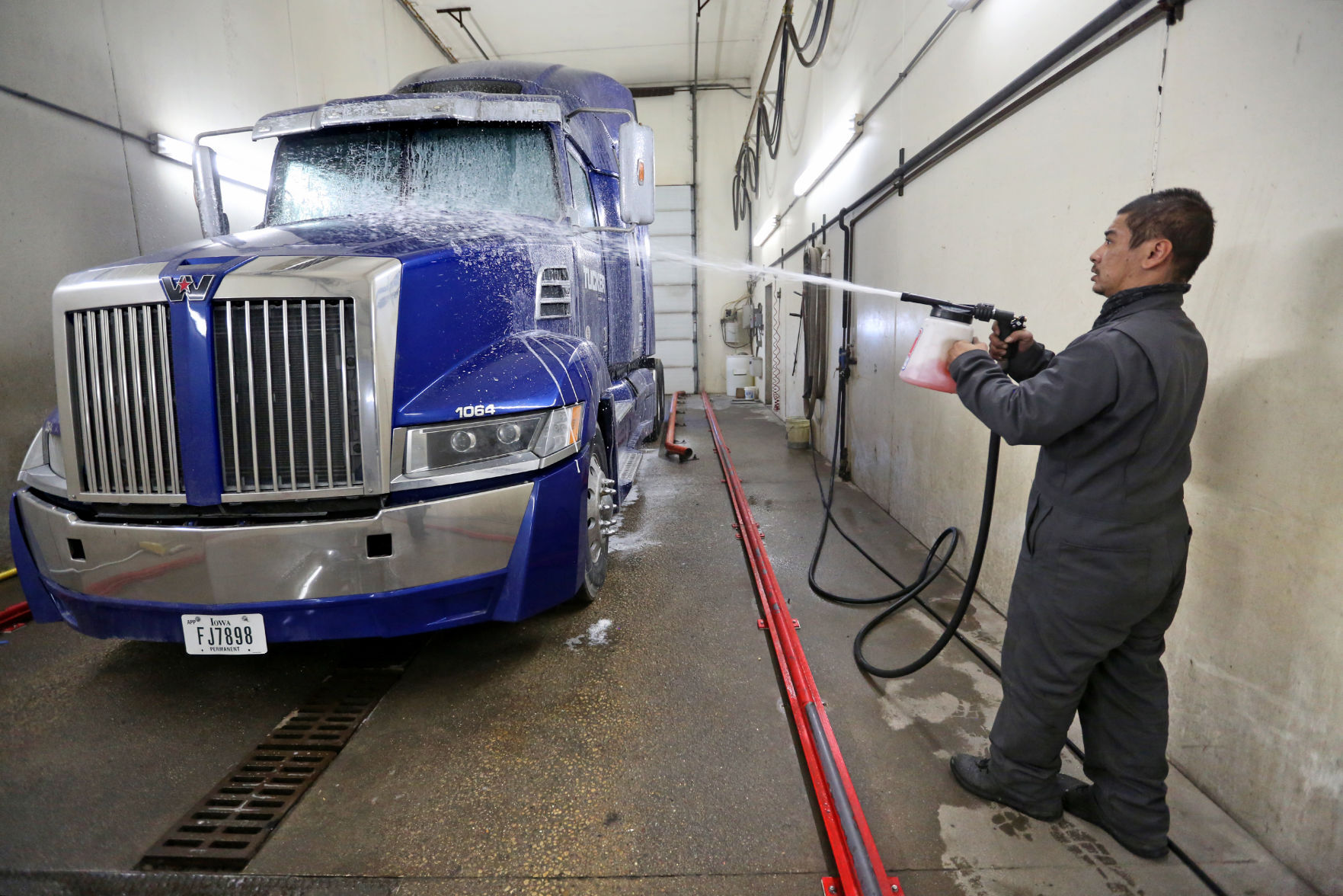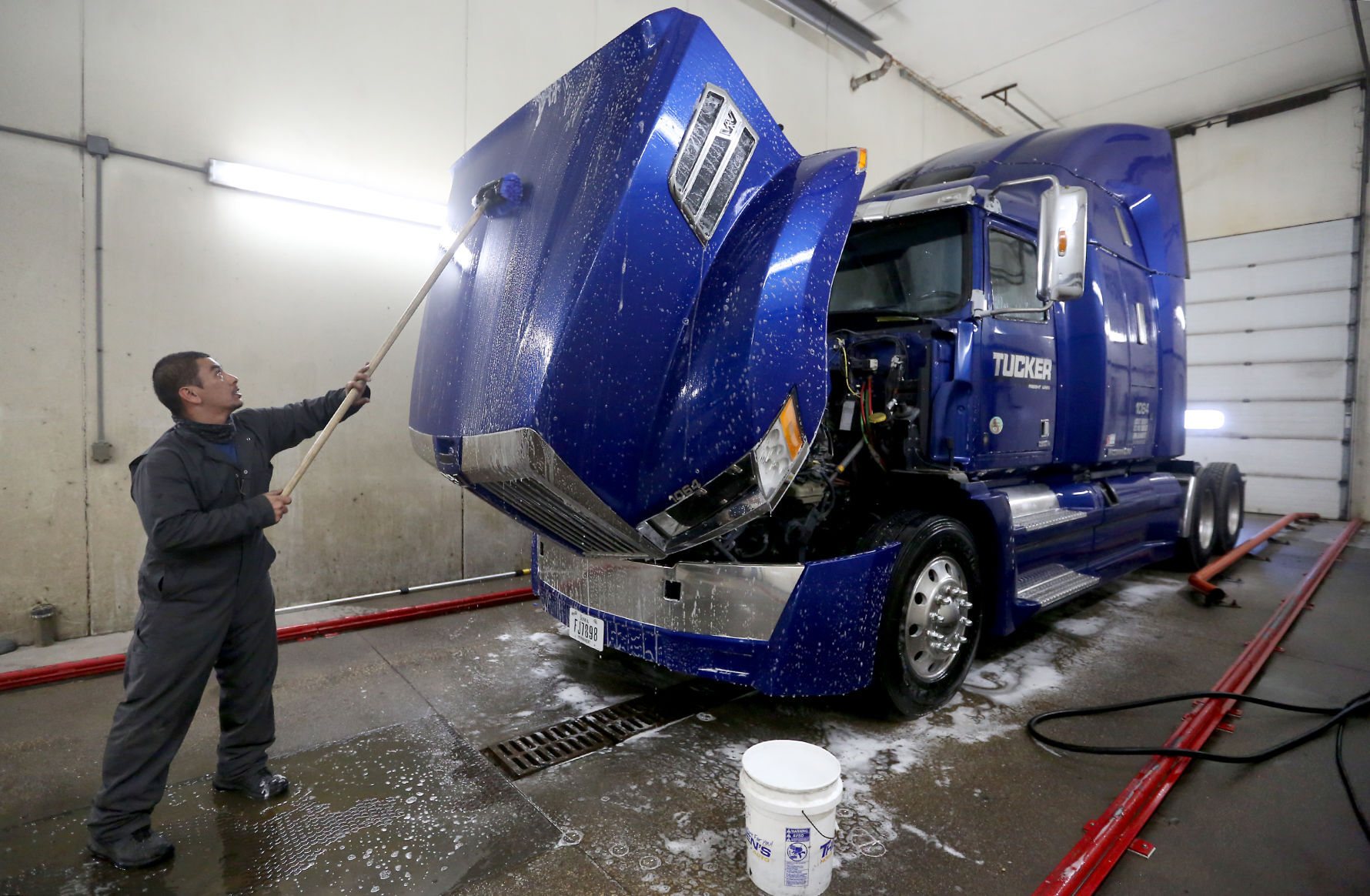Over the past 10 months, the economy has ebbed, flowed and been reshaped by the COVID-19 pandemic.
The tumultuous business conditions have affected a wide range of industries, from manufacturers to restaurants and retailers. Along the way, transportation and logistics companies have adapted to massive shifts in supply and demand.
Tucker Freight Lines, headquartered in Dubuque, is among the local companies that have weathered a rapidly changing economy, which bottomed out amid COVID-19 restrictions in the spring before springing back to life later in the year.
“In 2020, we went from trough to peak,” said co-owner A.J. Tucker. “Back in April and May, things kind of bottomed out. Ever since August, it has really been on a rapid incline.”
He said the unique challenges of the past year dealt a fatal blow to some companies within the transportation and logistics industries. For others, however, the circumstances have provided an opportunity for growth as companies across the U.S. meet pent-up-demand and attempt to navigate new delivery channels in a rapidly changing business climate.
Tucker Freight Lines hired about 40 new workers, bringing its total workforce to around 135, and added more than 30 trucks to its fleet in 2020.
And while this growth helped the company meet the needs of existing customers, Tucker acknowledged that, like many other trucking outfits, his company is turning down more transportation requests than it can accommodate.
The number of requests that Tucker Freight Lines could not fulfill — known as tender rejections — increased by 2,600% last year, he said.
“It’s not because we don’t want them,” Tucker said. “It’s because we are so busy.”
ADAPTING ON THE FLY
Tucker Freight Lines is far from the only company that has been swept up in the massive changes affecting the transportation and logistics sectors.
Hirschbach Motor Lines, based in Dubuque, saw growth of about 10% in the final quarter of 2020 alone, according to CEO Brad Pinchuk. But he emphasized that the growth didn’t come easily.
Hirschbach primarily moves food and beverage products around the U.S. These patterns of movement were altered fundamentally by changes in everyday life and consumption patterns, as restaurants shuttered and more products were purchased on a retail basis.
Adapting to these seismic shifts has not been easy.
“It’s been quite a roller coaster ride,” said Pinchuk.
He also noted that the increased demand for transportation services has come amid a drop in the industry’s driver base, a phenomenon brought on by a variety of factors.
Pinchuk explained that COVID-19 forced many driving schools to significantly limit class sizes or close altogether, severely limiting the pipeline of new drivers entering the industry. Meanwhile, the massive increase in delivery orders through companies like Amazon has prompted a surge in hiring at online retail companies, which has resulted in many truck drivers being pulled away to take those jobs instead.
“The changing patterns of freight have been a challenge,” Pinchuk said. “But the bigger disruption has been the impacts on the driver pool.”
WHAT LIES AHEAD?
Rockfarm Supply Chain Solutions, also headquartered in Dubuque, has contended with changes in the way that products are shipped.
Co-founder and President Brad Stewart explained that the company provides services and technologies that help customers manage their supply chains, effectively helping them secure the products they need in a timely fashion.
Stewart agreed that the dramatic swings in activity last year led to major challenges.
“There was a sharp decrease and then a sharp increase in volume,” he said. “It congested all the arteries in the country.”
As companies struggled to maintain their supply chain, companies like Rockfarm became even more important. Stewart said the company added 11 new employees, bringing the total to 75, and utilized the services of many temporary workers to keep up with the demand.
As the calendar turns to 2021, Rockfarm is anticipating more busy times.
“In terms of business expectations, I think we’ll keep pushing forward and things will keep busy in the first half of the year,” he said. “The challenge is gliding over all the bumps in the road.”
Pinchuk also forecasts a busy year in the transportation industry, although a return to normalcy still could be months away.
Certain segments of the business — such as conventions and other gatherings — aren’t expected to return in earnest until 2022, Pinchuk noted.
“For at least the first six months of the year, and probably longer, I don’t think the new normal is going to change that much,” he said.







